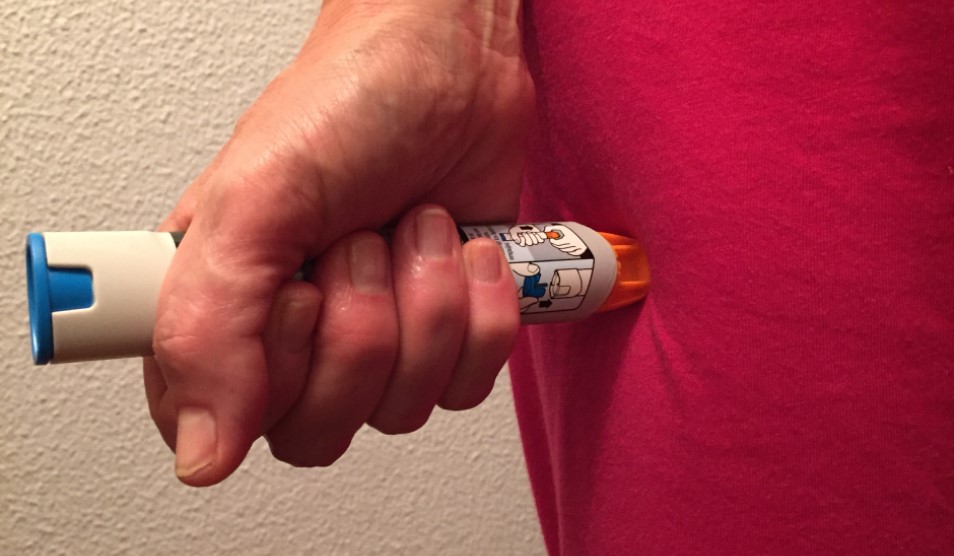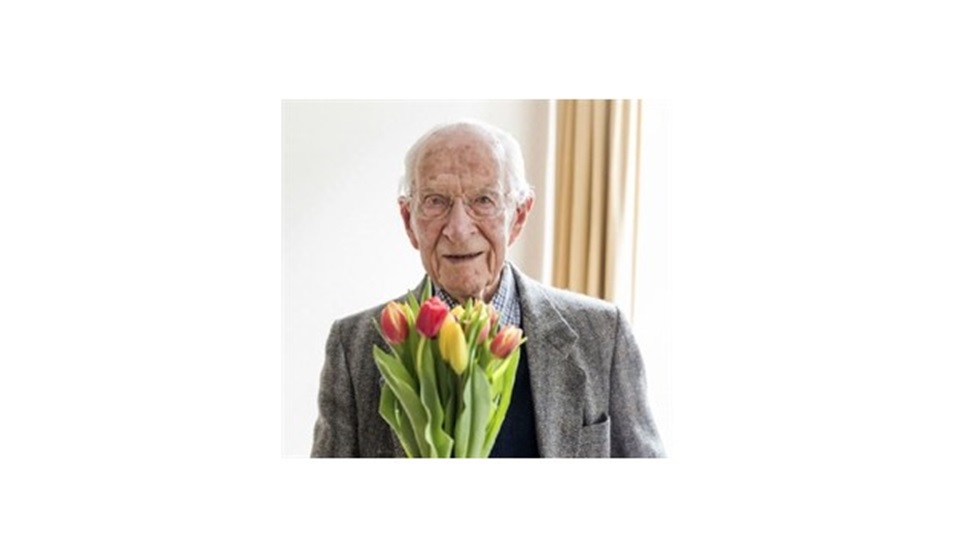Patient diagnosed with rare allergy after severe reaction to Christmas dinner
A TV director, who suffered a mysterious, potentially life-threatening allergic reaction after eating his Christmas dinner and going for a walk, has been diagnosed with a rare allergy by clinicians at St Mary’s Hospital in Paddington, part of Imperial College Healthcare NHS Trust.
EastEnders director, Richard Lynn (39) from London, was forced to rush back to his house while out for a walk with his family on Christmas Day 2014, after his face and body swelled up, he developed widespread hives and had difficulty breathing. He just made it back home before collapsing, losing consciousness twice before an ambulance rushed him to hospital.
After a series of unsuccessful attempts to identify the problem, Richard was referred to the specialist allergy clinic at St Mary’s Hospital. Following extensive skin testing and blood tests he was diagnosed with wheat-dependant exercise-induced anaphylaxis, in other words, anaphylactic shock caused by doing physical activity after eating wheat. Richard is now able to manage his condition by avoiding wheat or eating wheat and not exercising.
Richard said:
“I felt I had been suffering with a late-onset allergy for some time but had not been diagnosed. The symptoms I was getting were starting to interfere with my job. I work long days and have to do a lot of running around on set. Sandwiches and pizzas are a staple diet when filming and often I would start to feel hot, itchy, swollen and sometimes a bit faint without knowing the cause. But it was the reaction I had at Christmas, particularly collapsing, that made me realise I really needed to push to get this fixed.
“It was such a big relief when I was finally diagnosed. It meant I could control what I was eating and I no longer had to wonder if and when the next allergic reaction might happen. Now I know if I do eat wheat I should not exercise afterwards.”
Dr Sophie Farooque, an allergy consultant at Imperial College Healthcare NHS Trust, said:
“It is not uncommon for people to develop new food allergies as they get older. However, food-dependent exercise-induced anaphylaxis is rare. It is thought that the exercise encourages greater absorption of the allergen into the body causing a more serious reaction than the aggravating food would alone.
“When Richard told me he had eaten Christmas lunch including Christmas pudding and then developed an allergic reaction while on a walk, it set alarm bells ringing. It sounded as if exercise was lowering his tolerance. He was also having minor allergic reactions on a monthly basis often when he was eating foods containing wheat. This was strongly suggestive of a diagnosis of wheat-dependent exercise-induced anaphylaxis which we confirmed on testing.
“I am delighted that he has finally been diagnosed and hope he will be able to enjoy future Christmas’s without any further allergic reactions.”
Notes to editors
1. Imperial College Healthcare NHS Trust is home to the UK’s oldest allergy clinic with over 100 years’ experience in allergy vaccines, since providing the world’s first allergen immunotherapy treatment in 1911.
2. The Trust provides a complete allergy service to diagnose and treat a whole range of allergic diseases, providing expert advice, diagnostic tests and practical help for people affected by allergies, often within a single visit to our allergy clinic. The adult allergy service sees over 3300 new outpatients each year and treats more than 400 drug allergy day cases.
3. The Anaphylaxis Campaign provide support to people with severe allergies www.anaphylaxis.org.uk
For more information contact: Julia Smith, head of media, 020 3312 1475, julia.smith2@imperial.nhs.uk



